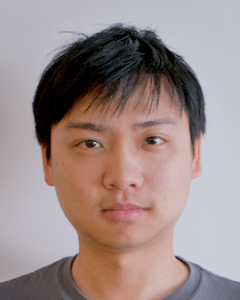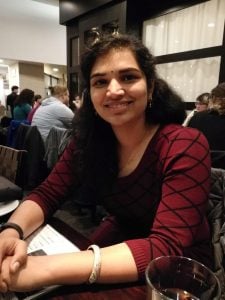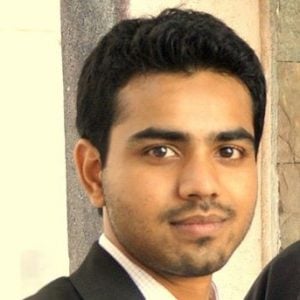
The Johns Hopkins Mathematical Institute for Data Science (MINDS) award fellowships for the spring and summer that recognize and support outstanding graduate students working broadly in data science, and particularly in the foundations of deep learning and graph learning. PhD students currently advised by MINDS faculty are eligible for the fellowships. Applications are reviewed by an awards committee for technical depth, potential impact of the research plan, and quality of presentation.
MINDS received a record number of applicants for the 2021 Spring Fellowship, but despite how competitive the application process was this time, the Department of Electrical and Computer Engineering had three students named as fellows.
See below to find out which ECE students are 2021 MINDS Spring Fellows, and for their thoughts on being selected.
Hancheng Min (Adviser: Enrique Mallada)

Hancheng Min
Research Interests: Min’s research aims to develop a better theoretical understanding of practical problems that arise in optimization, control, and machine learning. He has worked on characterizing the coherent behavior of networked dynamical systems and the applications of this theory to power networks. More recently, his focus is on convergence and implicit bias of first-order training methods for deep neural networks.
What are your thoughts on being named a 2021 MINDS Spring Fellow?
HM: It is a great honor to be named a MINDS Fellow. I sincerely thank my advisor and other collaborators, without whom I would not have received such recognition. Being named a MINDS fellow bolsters my determination to persevere through the many challenges in my research.
How will this fellowship help you this semester?
HM: The fellowship will enable exciting discussions with MINDS faculty and other MINDS fellows, which will support and improve my current work and sew new ideas to explore.
Niharika Shimona D’Souza (Adviser: Archana Venkataraman)

Niharika Shimona D’Souza
Research Interests: D’Souza’s research lies at the intersection of representation learning, non-convex optimization, graph signal processing and computational neuroimaging. During her PhD, she has been working on developing novel machine learning tools to analyze connectomics data.
What are your thoughts on being named a 2021 MINDS Spring Fellow? How will this fellowship help you this semester?
NSD: I’m honored to be named a MINDS fellow, as I have always admired the research carried out by MINDS faculty and students since its inception. Many of the topics that MINDS focuses on are well in line with my research interests and with my PhD research. The fellowship will support me in my studies during the spring semester of 2021. To be affiliated with an institute and faculty of such caliber and repute is great as it provides me with opportunities to interact with and learn from other data-science researchers.
Ravi Shankar (Adviser: Archana Venkataraman)

Ravi Shankar
Research Interests: Shankar’s work focuses on the problem of emotion conversion in speech. His research interests include speech processing, signal processing and unsupervised machine learning.
What are your thoughts on being named a 2021 MINDS Spring Fellow?
RS: I would say that I am very glad and lucky to get this award. I know some of the folks who are doing very high-quality research and applied to this fellowship program but didn’t get it. The credit goes to my advisor Dr. Archana Venkataraman for helping me pen down my research project in a way that resonated well with the award committee.
It feels great to see that our hard work over the last three and a half years is being appreciated by other experienced researchers and academics. This award is a responsibility on our shoulders to continue doing the good work.
How will this fellowship help you this semester?
RS: This fellowship will pay for my stipend and living expenses, which is always a nice thing to have. It further shows that I can raise money to fund my own research ideas which is always very tricky and is perhaps, the most difficult part of academia